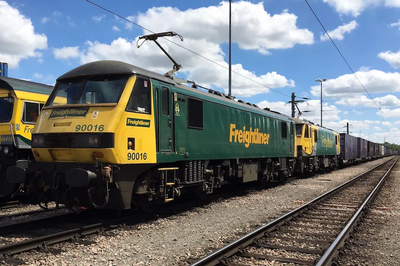"UK needs to Double the Rate of Rail Electrification or Green Targets will be Missed," says the Railway Industry Association.

The Railway Industry Association (RIA) is the main industry trade group for railway equipment manufacturers in the United Kingdom and is based in Smith Square, London. They are emphatic that the UK needs immediately to double the current rate of rail electrification.
Electrification is the main measure that will enable the UK Government to meet its commitment decarbonise by the railway system by 2050. However to do this means that at least 450 km of track need to be electrified every year.
However, figures published by the Office of Rail and Road (ORR) show that only 179 km of track were electrified in the UK in 2020-21.
The RIA is very concerned that the UK government will further cut back its ambitions in a short-term measure to curb expenditure and balance the public spending accounts. If that happens then not only will the railways be slow to bring in needed efficiencies, but the Government's green targets will be missed.
"That 179 track km in 2020-21, was mostly accounted for by completing the Midland Mainline upgrade between Bedford and Corby", said David Clarke, Technical Director of the RIA.
He was also critical of the forward plans. The project to electrify the line from London St Pancras station all the way to the city of Sheffield has been cut back to serve only Metro and outer-suburban services from London. This effectively cancels an electrified freight alternative to the busy East and West Coast Main Lines.
These disappointments come just as the UK is facing severe energy shortage problems. Gas supply issues have put a strain on electricity generation, forcing energy-intensive industry at large to consider reducing electricity consumption. This has even forced some rail freight operators to mothball their more efficient electric locomotives and revert to slower, less efficient and more polluting diesel ones.
Worse still, this spasmodic approach by UK government ministers - starting, stopping and partially restarting projects - has sapped confidence within the construction industry and left them with little certainty of future work. In a complex industry like rail electrification, turning supply chains on and off creates huge delays and inefficiencies. "What is needed," said one industry expert, "Is a steady rate of working through a longterm guaranteed plan. It is far cheaper - and quicker - if a steady pace of deliveries and deployment is achieved. Everything from skills recruitment to supply to testing and commissioning is then smoother, cheaper and more efficient."
(pic by Network Rail)
